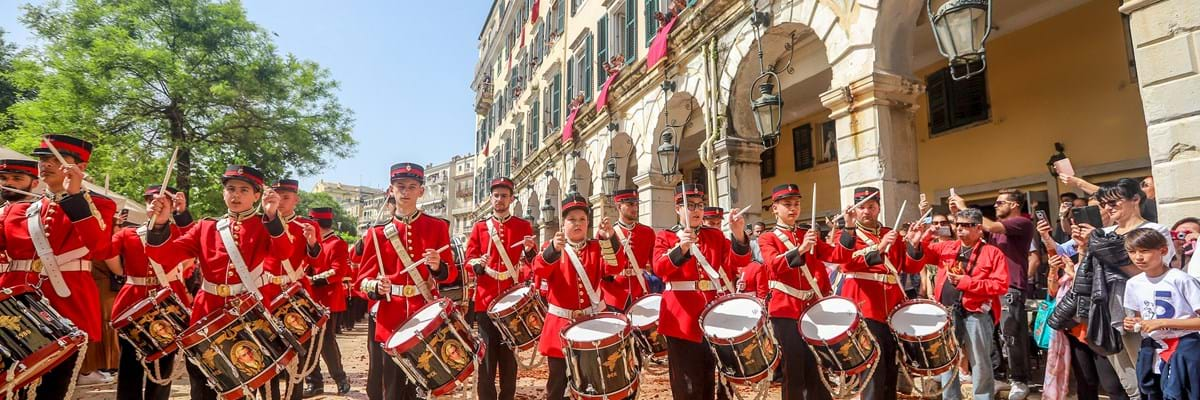To most people, Easter means decadent chocolate eggs, motifs of bright yellow hatching chicks and the excited hubbub of children racing around the garden during a hunt. But, when it comes to Greek Easter, things are done a little differently. First and foremost, the date! You might be thinking, well Easter was a month ago, wasn’t it? Greek Easter takes place roughly four weeks later (but this does vary year on year) and is the biggest holiday in the calendar for the Orthodox Church, seen as an honour to commemorate the fact that Jesus died on the cross. The festivities that take place are like nowhere else in the world, and with fantastic celebrations come time-honoured traditions all over the country, but if there’s one place that truly knows how to celebrate in style, it’s Corfu. Splendour, glory and extravagance are all in abundance in Corfu Old Town, making Easter on this island a pole of attraction for Greeks and foreign travellers alike. Watch Corfu transform into an epicentre of vibrancy and joy – there’s no better time to visit than during Greek Easter.
Why Corfu?
Corfu is a destination unto itself, no matter what time of year. Gorgeous golden beaches backed by azure waters, fascinating cultural attractions just waiting to get lost in, elegant hotels that are perfect for every kind of traveller – a holiday here is something special. But why not add a spiritual twist to your Corfiot adventure? Sure, summer is amazing but there’s something about spring that’ll make your experience even better. The weather this time of year is fantastic; sunny with a gentle Mediterranean breeze, which truly highlights the lush greenery of the island. Oh, and Corfiots also call Easter “Lambri” which translates to brightness! This brightness not only refers to the spectacular festivities of Greek Easter, but also the infectious spiritual brightness and warming sense of community that engulfs the entire island regardless if you’re a native or not. Traditional customs, events, music, food… you’ll never go back to celebrating this holiday with some Cadbury’s again.
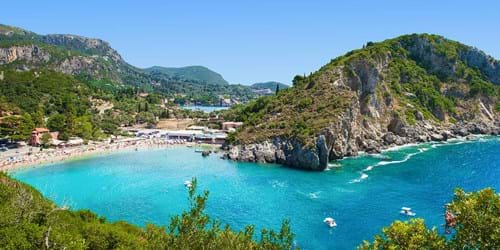
The celebrations begin
Typically, festivities last around seven days from Palm Sunday to Holy Sunday, and is known as The Holy Week, or Megali Evdomada. Holy Thursday is when the true excitement begins as preparations are made for the weekend ahead. This is usually when the Easter brioche is made, a sweet bread spiced with mahleb and braided with three pieces of dough to represent the Holy Trinity. The brioche, also known as tsoureki, is served with a red hardboiled egg in the middle, which is dyed such colour to symbolise the rebirth of life and the blood of Christ.
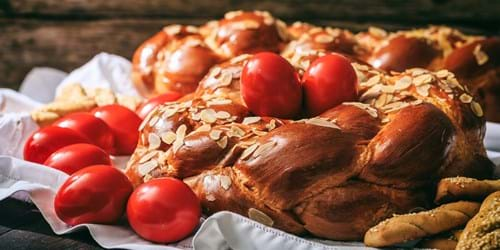
Holy Saturday in Corfu starts with a bang – quite literally, too. This grand and dazzling celebration begins at sunrise with an artificial “earthquake” at the Church of Our Lady of Foreigners which represents the earthquake that occurred during the Resurrection. The ruckus continues at 11am, when all the locals and visitors in the Old Town wait for the clock to strike so they can throw large clay pots (referred to as the botides) full of water from their windows and balconies (which are swathed with vibrant red fabric) on to the street below, and the melodic laughter and thunderous smashing is in perfect harmony with the church bells ringing joyfully in the background. People come from far and wide to witness the popular event, and the ritual is said to help ward off bad spirits while picking up the broken shards at the end is said to bring good luck. Don’t catch yourself standing too close to the crash site at this time – it’s safe to say that being struck by the spray of water and pieces of clay isn’t too pleasant!
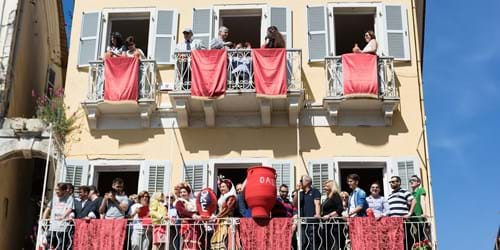
A feast for all the senses
Expect every moment of your holiday to Corfu to be filled with music, from the philharmonic orchestras accompanying the Resurrection procession to the local musicians found in every alley and corner of Corfu Old Town. The Resurrection service takes place outdoors at midnight on Easter Sunday, in the bandstand of the Upper Spianda Square, and is attended by thousands of people. As soon the officiator chants “the Risen Christ”, a crescendo of rejoice erupts as there is an explosion of hundreds of exciting fireworks and the orchestras being to play the Graceoi march as a soundtrack to the excitement. Parades through the streets, traditional dancing in the squares, lively chatter filling the air – if you’re sleeping, you’re truly missing out. The celebrations continue throughout the day, and you won’t be hard pressed to find several activities to occupy your time. We can’t forget about the delicious food. As Easter traditions go, lamb is often on the menu, but no one does it quite like the Greeks. Spit-roasted lamb is a staple in every household, eaten to honour Jesus as the Lamb of God. Magaritsa is often eaten to break the fast after Holy Lent too, a traditional soup made from lamb tripe but there are also other plenty of authentic Greek delights readily available if it doesn’t tickle your fancy.
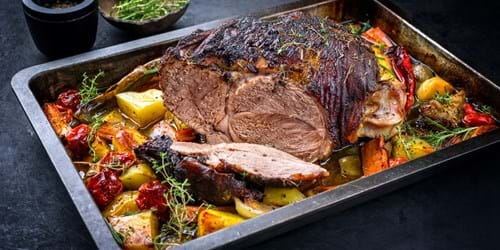
Where to stay during Greek Easter in Corfu
Once again, Corfu proves why it’s one of the most incredible Greek islands no matter when you decide to visit. Easter, the biggest holiday in the Greek calendar, is no doubt an unforgettable experience, but adding into the mix the beauty of Corfu, and you’ve got yourself memories that you’ll certainly cherish forever. Olympic Holidays knows a thing or two about getaways with a special something, so don’t hesitate to get in touch and book your next adventure.



